According to the American Psychological Association (APA), sexual abuse is “unwanted sexual activity, with perpetrators using force, making threats or taking advantage of victims unable to give consent,” making children and mentally disabled adults most vulnerable.
Survivors of sexual abuse have gone through a trauma that can leave them with physical and emotional struggles for life, making it difficult to function on multiple levels.
If you or your child has survived sexual abuse, Florida law entitles you to take legal action for the trauma and losses you've incurred from the abuse. Taking legal action in this sense means bringing a civil lawsuit against your perpetrator, which is separate from any criminal charges. A Fort Lauderdale sexual abuse attorney at Dolman Law Group can file a lawsuit against the person who caused you or your child harm.
Sexual abuse remains a sensitive subject, especially for survivors, as it often elicits feelings of guilt and shame. You might be struggling with your decision to take legal action against your perpetrator. Keep in mind that holding the person who harmed you accountable for his or her actions can help you heal, and when you speak out, you protect others who may otherwise be future victims.
Schedule A Free Consultation
- Why Choose Our Fort Lauderdale Sexual Abuse Attorneys?
- How Does Florida Define Sexual Abuse?
- Can Anyone Be a Victim of Sexual Abuse?
- Who Can Be Held Liable for Sexual Abuse in Fort Lauderdale, FL?
- How to Know If Someone You Love Was Sexually Abused
- What Are the Long-Term Effects of Sexual Abuse?
- What Steps Should I Take After Being Sexually Abused?
- Reporting Sexual Abuse in Florida
- Criminal Charges for Sexual Abuse Versus Civil Action
- What Are the Benefits of Filing a Civil Action Against My Abuser?
- What Is the Time Limit to File a Sexual Abuse Claim in Fort Lauderdale, FL?
- What If I Share Fault in My Sexual Abuse Case?
- Our Sexual Abuse Lawyers Serving Fort Lauderdale Can Help
- Contact Dolman Law Group Today for a Confidential Consultation
Why Choose Our Fort Lauderdale Sexual Abuse Attorneys?
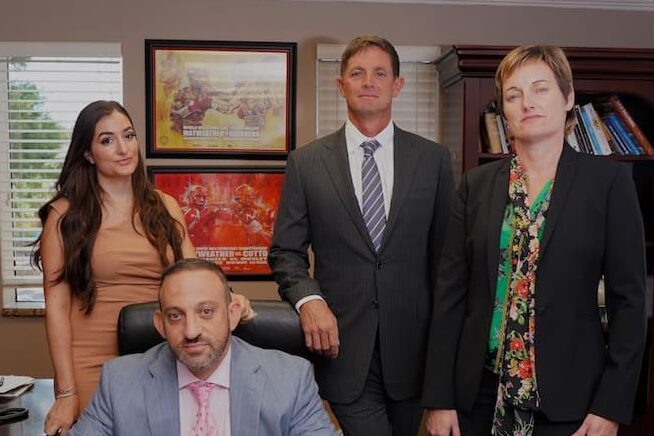
Selecting Dolman Law Group Accident Injury Lawyers, PA, for your Fort Lauderdale sexual abuse injury case ensures you have a dedicated and experienced legal team advocating for justice.
Dolman Law Group focuses on personal injury law, including sexual abuse cases, ensuring a depth of knowledge and experience in this sensitive area. The legal team approaches each case with compassion, recognizing the profound impact of sexual abuse. They prioritize the well-being of survivors throughout the legal process.
Dolman Law Group empowers survivors by providing legal guidance, advocacy, and support, aiming to bring about a sense of justice and closure for those who have endured sexual abuse. Dolman Law Group has a proven track record of successful outcomes in personal injury cases, showcasing their ability to navigate the complexities of sexual abuse claims.
Open and transparent communication is fundamental to Dolman Law Group's client relationships. Clients are kept informed at every stage, fostering trust and collaboration. We know how important building trust with sexual abuse victims can be.
For survivors seeking justice in Fort Lauderdale, Dolman Law Group Accident Injury Lawyers, PA, stands as a compassionate and experienced ally committed to advocating for their rights and well-being.
How Does Florida Define Sexual Abuse?
Sexual abuse is an umbrella term that includes many sex crimes. Each state uses slightly different language in its laws to label sex crimes that fall under sexual abuse. Florida law categorizes sex crimes into three broad categories: sexual battery, molestation, and exhibition. Each of these constitutes sexual abuse when committed against a minor or adult who cannot give consent.
Sexual Battery
Florida law distinguishes sexual battery from other types of sexual abuse based on whether penetration occurred. Oral, anal, and vaginal penetration each fall under the category of sexual battery, whether referring to a sex organ or another object.
One of the following must exist for sexual battery to take place under Florida law:
- The victim is incapable of resisting the perpetrator.
- The perpetrator makes a credible threat of force or violence.
- The perpetrator makes a credible threat against the victim or others.
- The perpetrator gives drugs to a victim or knows that another drugged the victim with a narcotic, anesthetic, or any other substance that impairs the victims' mental or physical capacities.
- The perpetrator knows that the victim has a mental health issue and likely cannot understand the nature of a sexual act.
- The perpetrator performs sexual acts when the victim is unconscious or sleeping.
- The perpetrator holds a position of power over the victim, such as correctional officers, police officers, etc.
- The victim is under age 18, Florida's legal age of consent.
Molestation
Florida law defines lewd or lascivious molestation, informally referred to as sexual touching, as intentional sexual contact with a minor's breasts, genitals, or buttocks. Unlike sexual battery, sexual abuse that involves molestation is only against the law when the victim is under age 16. Molestation can also occur when a perpetrator forces or coerces a minor to touch sex organs, buttocks, or the genital area, and it can also occur when clothed.
Exhibition
Often referred to as indecent exposure, exhibition occurs when a perpetrator exposes his or her genitals to another person or masturbates in front of them. Florida law also includes the simulation of sexual acts, sadomasochistic abuse, and sexual bestiality as exhibition.
Can Anyone Be a Victim of Sexual Abuse?
Anyone can be a victim of sexual abuse. It does not matter if you are a man, woman, teenager, child, an elderly person, married or unmarried; sexual abuse can unfortunately happen to you. Therefore, if you are second-guessing what happened to you or are in denial about the incident, always realize that you are not alone and that there are people who will listen whenever you are ready to speak about it.
Many times, sexual abuse happens in the comfort of individuals' homes or even by people they spend almost every day with. This can cause hesitancy when reporting or taking legal action because victims do not want to file a report against their family member, friend, teacher, nanny, caregiver, or anyone else they thought they were close to and can trust. Yet, understanding how common it is for perpetrators to exploit a higher position or authority as leverage for sexual abuse is important.
No matter who your abuser might be or their relationship to you, our Fort Lauderdale sexual abuse attorneys can assess whether you can hold them accountable for the harm and trauma they caused.
Who Can Be Held Liable for Sexual Abuse in Fort Lauderdale, FL?
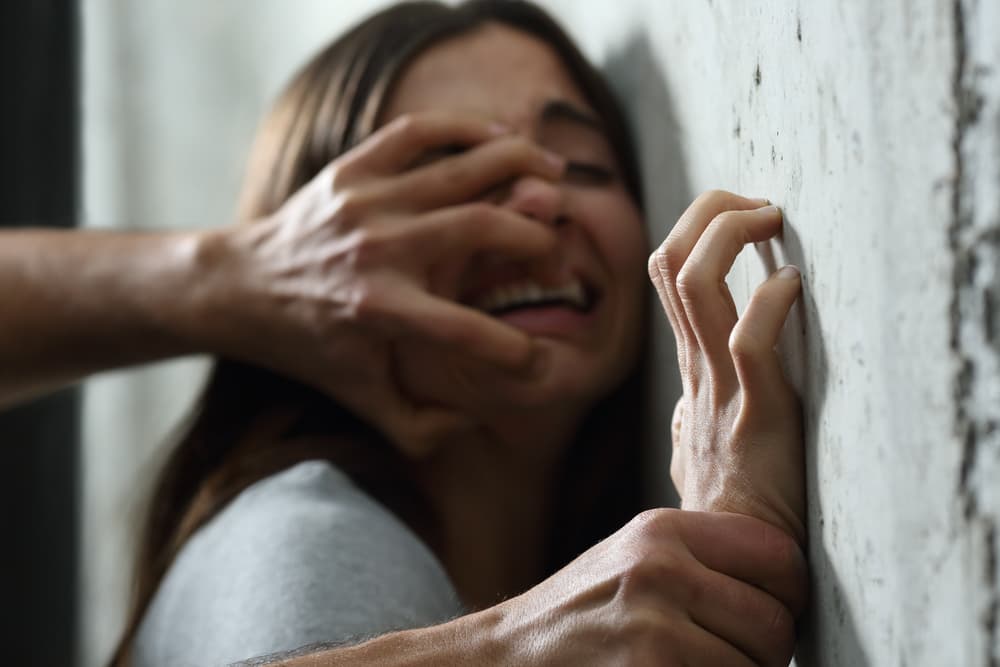
After you have decided to file a sexual abuse claim and seek compensation for your losses, you and your Fort Lauderdale sexual abuse attorney will work together to determine liability. You might also prove that third party's negligent behavior or misconduct caused or contributed to your sexual abuse incident.
Still, it is not impossible to prove a claim with the help and guidance from our Fort Lauderdale sexual abuse attorneys. While you may think the perpetrator is the only person you can file a claim against and hold accountable, several other possible parties may share liability. A few of the parties you may hold liable for your sexual abuse case include:
- Schools or school districts
- Nursing homes
- Adult or children's daycares
- Teachers, principals, or other school staff
- Tutors
- Community program leaders, such as Boy Scout or Girl Scout leaders
- Property, business, or homeowners
- Preachers, priests, or other clergy members
- Churches or religious organizations
- Caregivers or babysitters
- Managers, supervisors, employers
- Family members, friends, or friends of the family
When you hire a sexual abuse lawyer from Dolman Law Group to assist with your case, we will conduct our investigation and determine how your sexual abuse incident occurred, who is liable, and how much compensation you need to get your life back on track.
How to Know If Someone You Love Was Sexually Abused
If you suspect your child, a teen, or someone else you care about has suffered sexual abuse or is currently being abused, you need to look for common warning signs. Below is a broad overview of sexual abuse warning signs for different age groups based on criteria from the Rape, Abuse & Incest National Network (RAINN), one of the largest resources for sexual abuse survivors in the United States.
Sexual Abuse in Children
- Contraction of a sexually transmitted infection (STI)
- Blood or bruises in the genital or anal area
- Fresh blood or blood stains on clothing or bed sheets
- Overt and age-inappropriate sexual behavior
- Inappropriate sexual knowledge for the child's age
- Bedwetting, thumb sucking, and other new behaviors inappropriate for the child's age
- Nighttime separation anxiety and hesitation to be alone with specific people
- Refusal to take a bath and remove clothes
Sexual Abuse in Teens
- Contraction of a sexually transmitted infection (STI)
- Evidence of an eating disorder, such as refusing to eat or binging and purging
- Unexplained bruises and wounds
- Symptoms of depression, such as sadness, sleep difficulties, and social withdrawal
- Anxiety and excessive worry
- Poor grades in school
- Changes in personal hygiene and grooming habits
- Self-harm and talk of suicide
- Use and abuse of controlled substances
Sexual Abuse in Young Adults
- Contraction of a sexually transmitted infection (STI)
- Low self-worth and self-esteem
- Symptoms of depression, such as sadness, sleep difficulties, and social withdrawal
- Self-harm and talk of suicide
- Anxiety and excessive worry
- Avoiding certain people and particular places
- Increased use of controlled substances
When considering if a loved one may be a victim of sexual abuse, believe them if they tell you something happened. Others do not often take reports of abuse seriously or do not believe that the perpetrator would act in such a way. This is because most sexual abusers are friends or family members of the victims.
What Are the Long-Term Effects of Sexual Abuse?
When it comes to sexual abuse, it is not only the conduct itself that affects you. Instead, abuse often causes individuals to suffer long-term effects for the rest of their lives. The following are a few of the long-term effects that sexual abuse victims often experience:
- Sexually transmitted diseases: Sexually transmitted diseases (STDs) are one of the first effects of sexual abuse. Even though some STDs can be detected and cured quickly, there are several STDs that individuals can never get rid of. Sexual abuse victims may have permanent STDs they must disclose to all future sexual partners, or they may fail to identify and treat their STDs in time, resulting in lifelong damage to their bodies.
- Chronic pain: Another common long-term effect of sexual abuse is chronic pain. This may include recurring headaches, pain in their joints, muscle aches, or even tendon pain. While many people do not think of chronic pain as a long-term effect of sexual abuse, it is a common traumatic response and can be difficult to deal with. Stress, anxiety, and frustration can make chronic pain worse for the victim.
- Sexual dysfunction: Sexual abuse often leads a person to experience altered feelings about intimacy and sexual relationships. They may develop sexual dysfunction, sexual disorders, or even hypersexuality.
- Chronic illnesses: Sexually abused individuals face a heightened risk of developing chronic illnesses. Some of the most common chronic illnesses that a sexual abuse victim may suffer are autoimmune disorders, fibromyalgia, heart disease, strokes, chronic fatigue syndrome, and more.
- Substance abuse: Sexual abuse victims may not know what to do or where to turn after the incident occurs. They may feel lost, alone, and hopeless, causing them to turn to substance abuse. This is dangerous and sometimes deadly, but many victims use substances to cope and deal with their feelings instead of talking to someone about what happened.
- Gastrointestinal and stomach problems: Victims of sexual abuse frequently experience gastrointestinal and stomach problems due to feeling overwhelmed, stressed, humiliated, embarrassed, frightened, and more. A few of the most common types of gastrointestinal and stomach issues that sexual abuse victims experience include irritable bowel syndrome, constipation, diarrhea, pelvic pain, and abdominal pain.
- Anxiety and depression: Mental and emotional trauma are very common after sexual abuse. Thus, individuals who have experienced sexual abuse are prone to enduring severe anxiety, depression, mood swings, and other lasting mental and emotional disorders for many years. It can be difficult for sexual abuse victims to learn to cope and manage these feelings, causing them to need assistance from psychologists and counselors.
- Post-traumatic stress disorder: Post-traumatic stress disorder (PTSD) is a very serious type of mental health disorder. Victims who have this disorder may have frequent flashbacks, nightmares, and memories about the sexual abuse incident. This can strain their quality of life and enjoyment of activities, preventing them from completing their daily tasks and duties.
- Inability to make friends or have personal relationships: Lastly, sexual abuse victims may find it very hard to make friends and maintain a social life. This is because they feel embarrassed, humiliated, stressed, and frustrated. As a result, victims may want to be left alone and avoid public places. In addition, they may find it difficult to date or form personal relationships with people again. This may be because they can no longer trust anyone and feel shame about what happened to them.
What Steps Should I Take After Being Sexually Abused?
If you're a victim of sexual abuse, the emotional aftermath often encompasses feelings of confusion, stress, being overwhelmed, hopelessness, and a sense of being lost. Amid these emotions, navigating what to do or how to address the situation can seem daunting and unclear. However, prioritizing your safety and well-being is the foremost concern amidst this turmoil.
In the wake of such a traumatic event, there are crucial steps you can take to regain a sense of control and seek support. Here are five steps you should consider after experiencing sexual abuse:
- Get medical assistance: Many sexual abuse victims are reluctant to seek medical attention after sexual abuse, but this is an extremely important step. Doctors and physicians can identify and treat visible injuries, conduct tests to check for infections or unseen injuries and administer a rape kit, contributing to the reasons behind these actions. While you make the ultimate decision on whether you want to report the sexual abuse incident or not, seeking medical attention will show the court that you were sexually abused and needed medical assistance for your injuries. Keep in mind that some medical facilities give you the option of freezing the sexual abuse evidence, which allows you more time to think and decide if and when you want to report the abuse.
- File a report with your local police department: Sexual abuse victims often feel intimidated when it comes to speaking with law enforcement officers about the abuse. Instead, they may think they can eliminate the thoughts surrounding what happened and eventually move on with their lives. Nevertheless, we strongly advise that you report the incident to your local police department, informing them of what occurred and who perpetrated the abuse against you. The sooner that you file this report, the sooner that law enforcement officers may find the abuser and ensure that they cannot put anyone else through the same pain and suffering that you have endured.
- Consider speaking with a psychologist or counselor: You may think that you can forget about what happened to you, decide never to mention it again to anyone, and try to move on with your life like the horrific event never occurred. However, the truth is that you and your body will likely find other ways to handle and deal with your feelings. For example, you may turn to drugs and alcohol to cope with your feelings surrounding the abuse. This can also lead to severe depression, anxiety, PTSD, and other mental health disorders. Therefore, the next step you should consider taking is speaking to a psychologist or counselor. If you feel embarrassed, self-conscious, and humiliated about what happened to you, a licensed therapist possesses the experience to aid in overcoming and managing these feelings.
- Keep any evidence regarding your sexual abuse incident: Whether you decide to move forward with filing a lawsuit or report against the abuser, you should gather and preserve all evidence regarding your sexual abuse incident. For example, you will want to keep photographs, videos, text messages, voicemails, medical bills, medical records, receipts, documentation, eyewitness contact information, and more. These evidence pieces are critical in supporting your side of the story and showing what happened and who is liable.
- Hire a sexual abuse lawyer: The last step, which is one of the most important, is to hire a Fort Lauderdale sexual abuse lawyer. Once you begin receiving medical attention, are getting therapy, and have reported the abuse to law enforcement, you should get in touch with an attorney as soon as possible. Your attorney will schedule a meeting to get to know you, learn about your experience, offer you the support and advice you need, and answer any of your questions and concerns. Every meeting that you have with your lawyer will be 100 percent confidential. Therefore, you can rest assured knowing that everything you say will remain private and unrepeated, and with your attorney's guidance, you can make decisions that benefit you and your needs.
Reporting Sexual Abuse in Florida
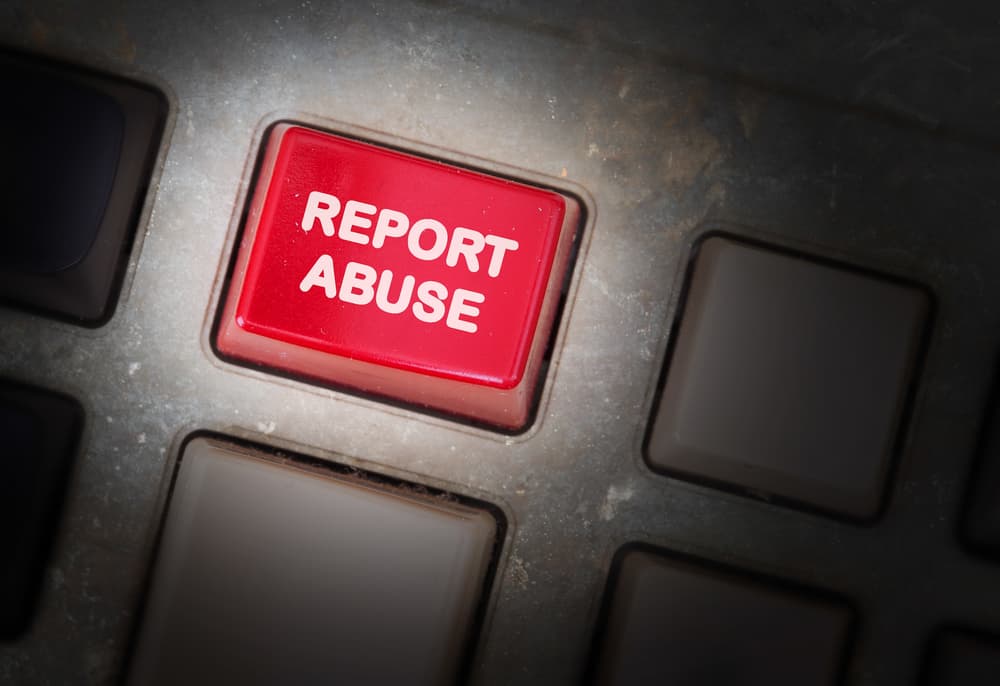
Individuals who have experienced sexual abuse or are currently being abused need to speak about their trauma with a trained professional. While local resources are available in the Fort Lauderdale area, some prefer the anonymity of a national resource. RAINN's National Sexual Assault Line has professionals available around the clock at 800-656-HOPE (4673) and online at online.rainn.org.
If you are in immediate danger related to sexual abuse or know someone who is, call 9-1-1 as soon as possible so emergency response teams can help you.
You can report the sexual abuse of a child or vulnerable adult to the Florida Department of Children and Families (DCF) by calling its central abuse hotline at 1-800-962-2873 or filing a report online. Once you file a report with DCF, agency staff will immediately investigate the situation and involve law enforcement if necessary.
Remember that Florida law has strict reporting requirements for individuals who suspect the sexual abuse of a vulnerable adult or child. Medical professionals, social workers, law enforcement, bank employees, and many others must report the abuse of a vulnerable adult or child under the state's mandatory reporting rules. Principals, teachers, and others who work in a school and daycare providers and judges must also file a report with DCF if they suspect a child has been sexually abused.
If you are not sure if you are required to report a situation but believe a minor or another vulnerable person may be a victim, a sexual abuse attorney can determine the right course of action for your situation.
Criminal Charges for Sexual Abuse Versus Civil Action
Sexual abuse survivors can legally seek justice in two ways: criminal charges and a personal injury lawsuit in civil court. These two paths are independent and have vastly different judicial processes. If you have reported your abuse to the police, it's possible you have already been through a criminal trial and provided your testimony.
If you haven't yet reported your abuse, the state's attorney in your county may file criminal charges against your perpetrator, as your suit may trigger a criminal investigation. In either case, the prosecutor will listen to your story and ultimately decide whether to file criminal charges; it is not your choice. The outcome of a criminal court case depends on whether the jury finds your abuser guilty beyond a reasonable doubt.
The civil lawsuit process is different. It is your choice to take action, and the outcome of the criminal trial does not impact whether you can file a suit. In a civil lawsuit against your abuser, you seek compensation for the physical, financial, and emotional damages you have incurred as a result of sexual abuse.
The outcome of a civil trial does not include penalties like jail time or fines. The other notable difference between criminal proceedings and a lawsuit against your abuser is the standard for evidence.
For jurors to rule in your favor, your attorney needs only to prove that it's more likely than not that your abuse occurred instead of beyond a reasonable doubt threshold in criminal trials. This preponderance of the evidence threshold means that the jury must believe a greater than 50 percent chance that your claim is true.
What Are the Benefits of Filing a Civil Action Against My Abuser?
Whether or not you choose to pursue a civil case based on the abuse you or your child endured is a very personal choice. Our Fort Lauderdale personal injury attorneys are here to weigh your options and explain what each entails. All of our consultations are completely confidential, and you do not have to move forward with your sexual abuse case if you do not want to do so.
Some reasons why sexual abuse survivors choose to take civil action, in our experience, include:
To Hold Their Abuser Responsible
The criminal justice system does not always work out for victims. Because it occurs in private and predators take steps to cover their actions, sexual crimes can be extremely difficult to prove in criminal court. Sometimes a civil case is the only way to hold the perpetrator legally responsible.
To Recover Expenses and Losses
Victims can recover compensation for their economic and non-economic damages through a claim or lawsuit. This can help cover expenses and make up for any financial losses suffered. Recoverable damages include:
- Related medical bills
- Psychological counseling and other support
- Lost income if they missed work while recovering or receiving care
- Pain and suffering for physical injuries
- Emotional distress and other psychological effects
- Other intangible losses
- Punitive damages, in some cases
To Help Others Get Justice
Unfortunately, sexual predators are often in positions where they can meet and abuse many victims. Some continue for decades because they are not held accountable despite numerous reports. Sometimes, they can get away with it because an institution supports them and helps keep the scandal quiet.
From national sports organizations to universities and churches to the Boy Scouts of America, many high-profile sexual abuse cases have been in the last few years. Many victims join these claims to help others prove their claims and get justice.
What Is the Time Limit to File a Sexual Abuse Claim in Fort Lauderdale, FL?
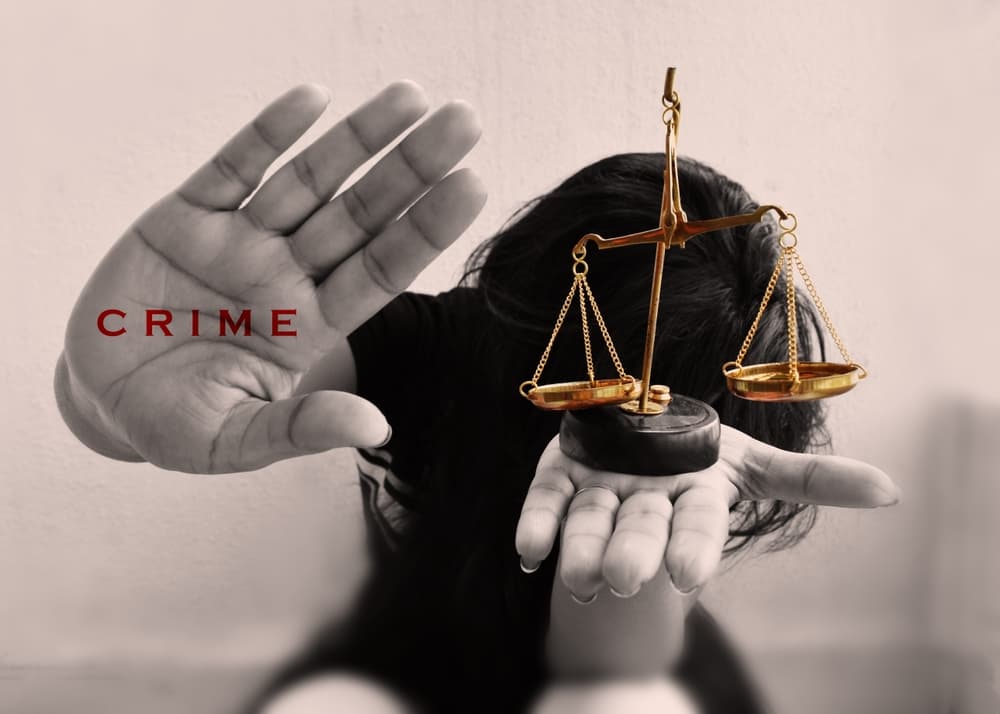
Consider that there's a time limit for Florida residents to file a sexual abuse claim in Fort Lauderdale. While you have several years to process the event and seek legal assistance, we recommend initiating discussions with an attorney at your earliest convenience. Here are the time limits that you must keep in mind when it comes to sexual abuse claims:
- If your sexual abuse occurred when you were a minor, you have seven years after turning 18 to file a claim in Florida. This means that you must file your claim before you reach the age of 25.
- If you experienced sexual battery before the age of 16, you have no time limit to file a claim. This means you can file your claim at any age or time.
- If you were sexually abused by someone that you depend on or live with, you have four years from the time you move out and no longer depend on the abuser to file a sexual abuse claim. You can also file a claim four years from the time you discover the relationship between your abuse and injuries.
Contact a lawyer as soon as possible to learn more about the time limits that apply to your case.
What If I Share Fault in My Sexual Abuse Case?
Immediately after the sexual abuse incident, it is common for victims to begin processing and thinking about what happened. During this time, they may try to make sense of everything, causing them to blame themselves or think they may have shared some fault. While managing and coping with your thoughts, recognizing that you hold no responsibility for your sexual abuse is crucial.
Remember that you are a survivor, and you can stand up and fight back against the abuser. That's where Dolman Law Group's sexual abuse attorneys step in, ready to support you in finding your voice and using it to hold the responsible parties accountable for their behaviors. We'll ensure you understand your rights and support your pursuit of the compensation necessary and deserved to regain your footing and reclaim control of your life.
Our Sexual Abuse Lawyers Serving Fort Lauderdale Can Help
Coping with the trauma of sexual abuse may prove overwhelming for survivors, regardless of age. If you are an adult survivor or parent of a survivor, you understand the challenges and may even carry common feelings of shame or guilt. If you were abused, it's not your fault.
You deserve justice and the opportunity to hold your abuser accountable for his or her actions. Taking legal action against your abuser will not undo the past. Still, an experienced sexual abuse attorney can seek justice, advocate for you, and potentially secure a settlement or jury award. Some examples of how an attorney can help include the following.
Investigation
Skilled lawyers investigate the circumstances of sexual abuse to uncover facts that help build a strong case against the perpetrator. Investigative activities vary based on the facts of your case but may include:
- Obtaining police reports and medical records that support your case and reviewing evidence used in a criminal trial, if applicable
- Finding and speaking with witnesses or other victims who suspected, reported, or suffered sexual abuse
- Consulting with experts, especially doctors and psychologists that can speak about the impact of your abuse
Some sexual abuse survivors hesitate to speak out because they want to protect their identities. Reputable and seasoned attorneys go the extra mile to maintain your anonymity and keep your case confidential.
Negotiation
The outcome of a civil lawsuit against your abuser will be a verdict in favor of you, the plaintiff, or your abuser, the defendant. If the court rules in your favor, you can be awarded damages related to the losses and injuries you incurred from your abuse. However, not all sexual abuse cases go to court. For many reasons, some survivors choose not to go to trial and have an attorney litigate their claims.
Often, this decision has to do with the desire to remain anonymous or avoid having to relive the traumatic events through testifying in a courtroom. However, this does not mean you cannot recover compensation without appearing in court.
Experienced attorneys have honed their negotiation skills and can hold your abuser financially liable for damages without litigation. If it is the right decision for your circumstances, you can avoid the courtroom and let your attorney negotiate to get the best possible settlement for your sexual abuse case.
Courtroom Advocacy and Litigation
Sometimes settlement simply is not an option for a sexual abuse case, which means an attorney must fight for his or her client in court. If your sexual abuse case needs to be litigated, your attorney will be prepared to fight for you and increase the likelihood that the court will rule in your favor.
Some survivors feel they need litigation as part of their healing process. Maybe there were never criminal charges, and they want to see their abuser publicly held accountable for their actions. In other cases, their abuser refuses to admit fault or will not agree to an appropriate settlement. These are all good reasons to go to trial.
A courtroom trial provides an opportunity for survivors to face their abusers. Your Fort Lauderdale attorney will discuss the best course of action for your circumstances. We can proceed with your case in the way you believe is best for you. We will discuss your options based on the facts of your case and provide guidance and advice while you make this decision.
Contact Dolman Law Group Today for a Confidential Consultation
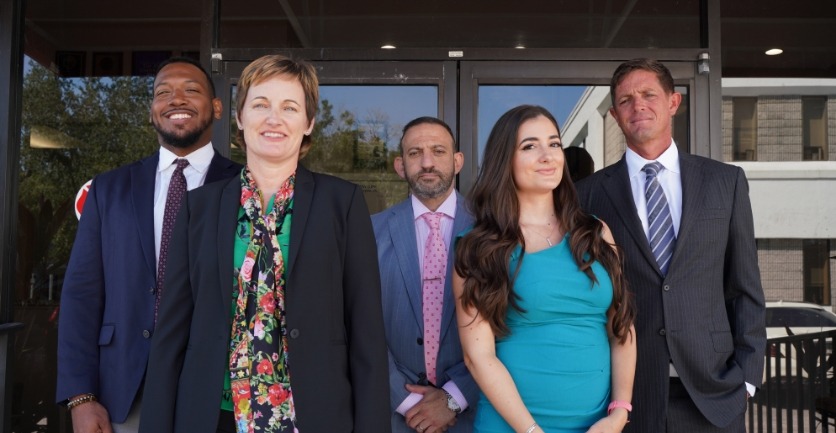
If you are a survivor of sexual abuse or the parent of a survivor, you deserve to hold the abuser accountable in every way possible. Receiving compensation for injuries and losses related to the abuse does not turn back time. Still, it can help pay for therapy to work through the trauma and alleviate some or all debt related to abuse.
Contact Dolman Law Group or call us at (754) 208-1130 for a private consultation to determine the right course of action for your situation.